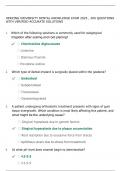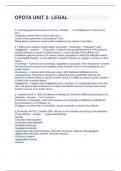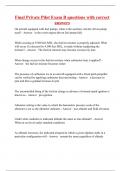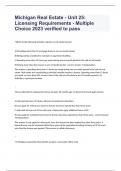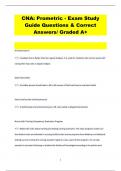Exam (elaborations)
HERZING UNIVERSITY DENTAL KNOWLEDGE EXAM 2025 , 200 QUESTIONS WITH VERIFIED ACCURATE SOLUTIONS
- Course
- DENTAL KNOWLEDGE
- Institution
- Herzing University
Which of the following solutions is commonly used for subgingival irrigation after scaling and root planing? Chlorhexidine digluconate Listerine Stannous Fluoride Povidone-iodine 2. Which type of dental implant is surgically placed within the jawbone? Endosteal Subperiosteal Transosteal Osseoint...
[Show more]
